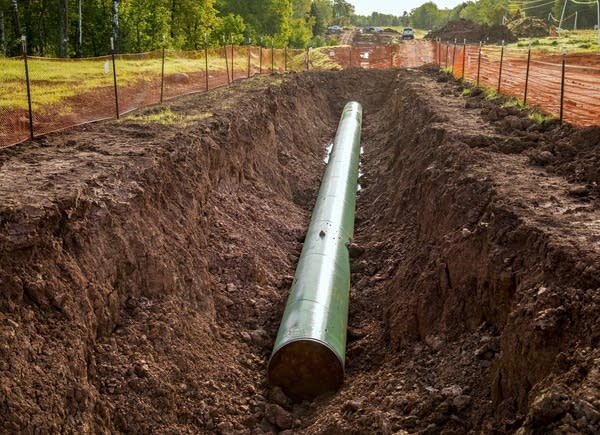Human Rights Department questions pipeline proposal

Go Deeper.
Create an account or log in to save stories.
Like this?
Thanks for liking this story! We have added it to a list of your favorite stories.
The Minnesota Department of Human Rights is raising questions about the impacts of the proposed Line 3 oil pipeline through northern Minnesota on the state's Indian tribes, saying that "preserving one of the last areas left where the Bands can exercise their treaty rights in clean lands and waters should be a very important consideration."
In its letter to the state Public Utilities Commission Tuesday, Human Rights Commissioner Kevin Lindsey said his department believes Calgary-based Enbridge's preferred route for the new pipeline traverses "one of the last wild locations in Minnesota."
He said the pipeline "could potentially damage a crop [wild rice] that many Native people consider sacred."
The Department's comments concern the adequacy of the state's environmental review of the project.
Turn Up Your Support
MPR News helps you turn down the noise and build shared understanding. Turn up your support for this public resource and keep trusted journalism accessible to all.
Enbridge has proposed replacing its existing Line 3 oil pipeline with a new line that could carry about twice as much oil along a new route across northern Minnesota.
Line 3 is part of a larger corridor of six pipelines carrying about 2.5 million barrels of crude oil every day from Canada to Enbridge's terminal in Superior, Wisc.
Enbridge's proposed route for the new Line 3 follows the existing path to Clearbrook, Minn., near Bemidji. But from there it would cut south, following another pipeline corridor to south of Park Rapids. Then it would head east, through Cass, Aitkin and Carlton Counties.
That route is fiercely opposed by several tribes in northern Minnesota, as well as many environmental and citizens groups. They fear a spill could contaminate lakes, rivers, wetlands and wild rice waters in northern Minnesota's prime lake country.
Enbridge argues a new pipeline would improve safety by replacing a vintage, 1960s era pipeline that's corroding and cracking.
Though the current corridor crosses both the Leech Lake and Fond du Lac reservations, the proposed new route would not cross any Indian reservation. However, it does cross land the tribes ceded to the federal government in 19th century treaties-land where many tribal members still hunt, fish and harvest wild rice.
The Minnesota Department of Human Rights also argued that a traditional cultural properties survey of the proposed pipeline should be completed before the Public Utilities Commission approves a final environmental impact statement.
The tribes made the same argument to the PUC last week.
But in a 5-0 vote, the commissioners rejected that argument, saying only that the survey must be done before construction on the pipeline can begin.
"We appreciate the perspective that we should go further," said Commissioner Dan Lipschultz.
In its comments to the PUC, the Fond du Lac Band of Lake Superior Chippewa said its greatest fear is an outcome similar to the recent approval of the Dakota Access pipeline in North and South Dakota, which led to massive protests near the Standing Rock reservation, "and permanent loss of traditional cultural properties due to the inadequate review of the project prior to its construction."
The Minnesota Public Utilities Commission is expected to vote on Line 3's final environmental impact statement sometime in March.
Dear reader,
The trustworthy and factual news you find here at MPR News relies on the generosity of readers like you.
Your donation ensures that our journalism remains available to all, connecting communities and facilitating better conversations for everyone.
Will you make a gift today to help keep this trusted new source accessible to all?



